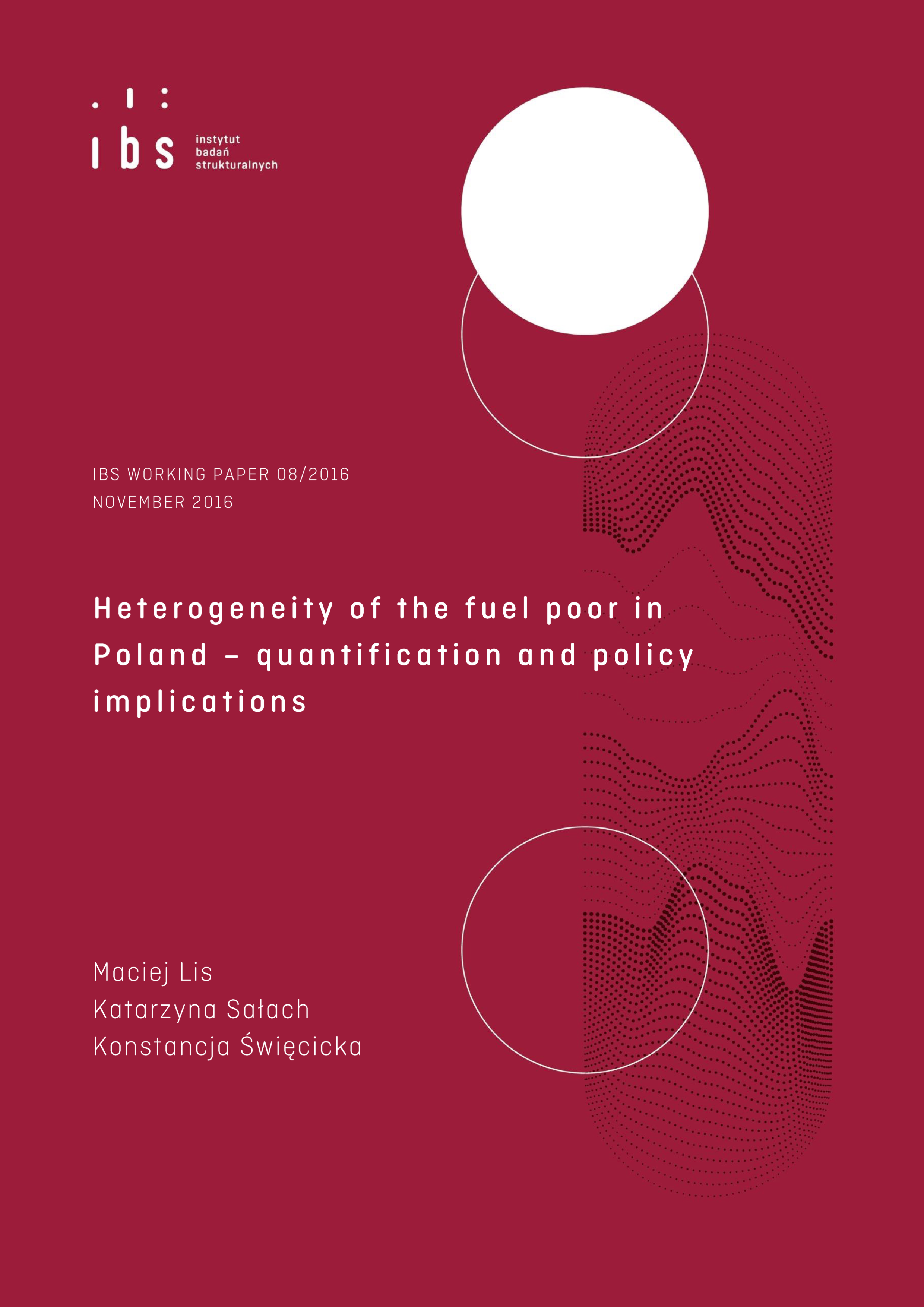The purpose of the paper is to quantify the heterogeneity of causes and symptoms of energy poverty in order to provide guidance for policies aimed at fuel poverty alleviation. We quantify the diversity of the households in Poland in terms of energy efficiency and income using cluster analysis. We have identified twelve types of households. Fuel poverty in terms of either affordability measure (LIHC – Low Income High Costs) or subjective measure concentrates in six of them. Fuel poverty measured with the LIHC concerns mainly lower-income families with children, living in large houses in rural areas. The subjective measure (lack of thermal comfort indoors) points to energy deprivation in city households occupying dwellings in pre-war tenement houses and poor rural inhabitants living in old, run-down houses. We finally link the types of the fuel poor with their behavioural characteristics identified by the qualitative studies. Both the strategies adopted by the poor and insufficient central and local policies mitigating economic transition are highly relevant factors for shaping policies aimed at eradicating fuel poverty.

We would like to thank Harriet Thomson, PhD (University of Manchester) and Piotr Lewandowski (IBS) for their many helpful suggestions. The publication was developed by a grant funded by the European Climate Foundation. All errors are the authors’ sole responsibility. The usual disclaimers apply.

